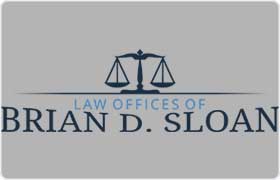Glendale DUI-DWI Lawyer, Arizona
Sponsored Law Firm
-
 x
x

Click For More Info:
-
Law Offices Of Brian D. Sloan PLLC
2 N Central Ave Suite 1929 Phoenix, AZ 85004» view mapCriminal Defense Law REAL, QUALITY, FOCUSED
I have spent my entire career focused on DUI Defense representation, having defended more than 3,200 DUI clients in the past 15+ years.
480-720-7839
Joshua Angel Lopez
✓ VERIFIED *Status is reviewed annually. For latest information visit hereJoshua A. Lopez, Esq. is an attorney serving Arizona, California, and Nevada. Joshua practices criminal defense and personal injury. Joshua is dedicat... (more)
Kristen M Curry
✓ VERIFIED *Status is reviewed annually. For latest information visit hereKristen Curry has been certified as a Criminal Law Specialist through the State Bar of Arizona for the past 25 years and has extensive jury trial and ... (more)
Sean Robert Forrester
✓ VERIFIED *Status is reviewed annually. For latest information visit hereSean Forrester, managing attorney at Lerner and Rowe Law Group, has made a career advocating for the rights of the citizen accused. Mr. Forrester has ... (more)
Solomon O. Kanu
✓ VERIFIED *Status is reviewed annually. For latest information visit hereWhen you are looking for a lawyer to help you resolve a legal matter, you want to know that your attorney has what it takes to handle your case with e... (more)
Brian D. Sloan
✓ VERIFIED *Status is reviewed annually. For latest information visit hereAttorney Brian Sloan is one of only a handful of Attorneys in Arizona that focuses SOLELY on & Specializes in DUI Defense Representation. Mr. Sloan... (more)
John Schill
✓ VERIFIED *Status is reviewed annually. For latest information visit hereIf you've been arrested for driving under the influence (DUI) or another criminal offense in Phoenix, Arizona, who will you bring to the fight? Workin... (more)
Craig Raymond
✓ VERIFIED *Status is reviewed annually. For latest information visit hereCraig Raymond, an attorney at My AZ Lawyers, has been practicing law in Arizona Nearly 25 years. Mr. Raymond understands the impact and privilege of h... (more)
John P. Tatz
FREE CONSULTATION
CONTACTJose Luis Mendoza
FREE CONSULTATION
CONTACT Brian Sloan Phoenix, AZ
Brian Sloan Phoenix, AZ







